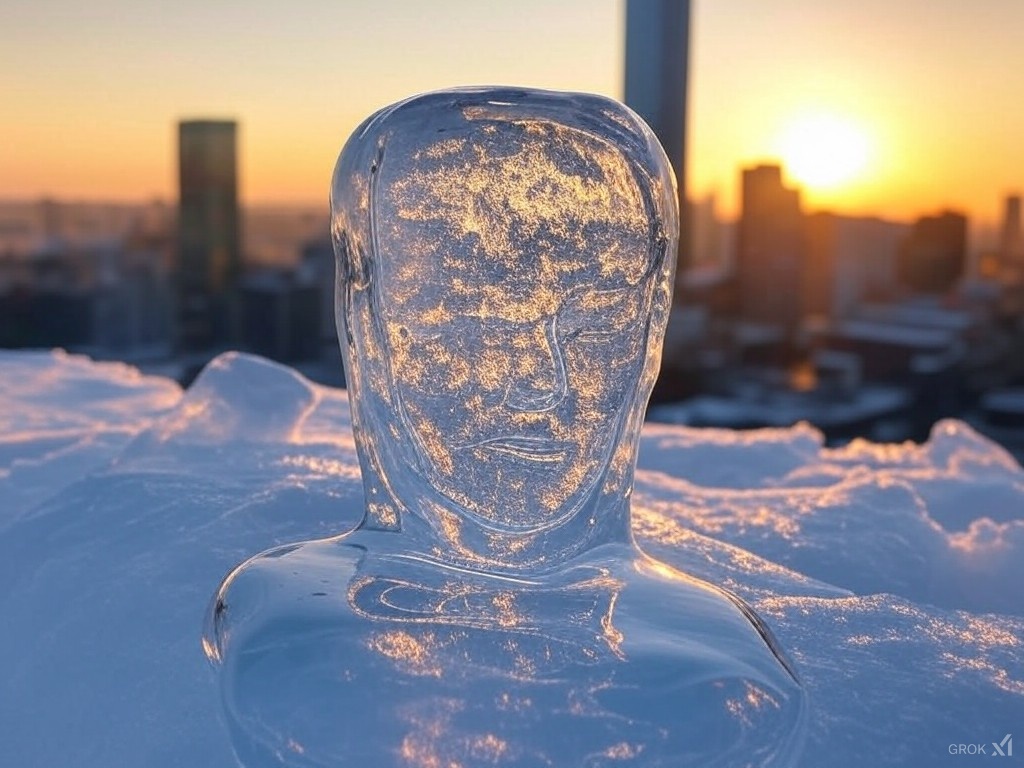The following article, Scam Melting Under the Heat of Truth, was first published on The Black Sphere.
Add climate change to the list of overhyped catastrophes that are finally biting the dust in 2025.
For nearly three decades, Leftists have spun weather phenomena into a doomsday narrative—a lucrative grift disguised as concern for the planet. And who can forget Y2K’s poster boy for failed predictions, Al Gore? The man who swapped a marriage for a mansion and financed his newfound bachelor lifestyle on taxpayer dollars under the pretense of saving the Earth.
It’s bad enough we’re forced to buy bottled water because of the toxins in the water supply we’re already taxed for. But paying for air? That was my personal line in the sand. From the alleged melting of the polar ice caps to predictions that New York would be underwater by now, the climate change narrative has produced as much hot air as the “science” it’s built upon.
Decade after decade, we’ve been bombarded with predictions as credible as the Heaven’s Gate cult’s belief in salvation by alien spacecraft. At least those poor souls had the decency to only ruin their own lives. Climate alarmists, on the other hand, have turned fleecing the public into an art form.
Take the Heaven’s Gate incident as an example of misplaced faith gone too far.
In 1997, 39 people tragically took their own lives, believing their bodies were mere “containers” to be abandoned for a spaceship trailing the Hale-Bopp comet. While tragic, their actions didn’t involve imposing a global carbon tax. Climate crusaders, however, demand nothing less than a financial and behavioral overhaul of our entire way of life, all based on shaky science and apocalyptic forecasts that never come true.
As it turns out, 2025 is shaping up to be the year of the “climate deniers”—also known as people who simply trust the science of meteorology over the politics of fearmongering. Americans are waking up to the con, and even CNN’s Harry Enten has inadvertently highlighted this shift. As he pointed out, while Google searches for “wildfires” have skyrocketed by 2,400%, searches for “climate change” have actually dropped by 9%.
Americans aren’t making the connection between the wildfires & climate change some would hope. While Google searches for wildfires are up 2,400%, searches for climate change are down 9%.
Indeed, the % of Americans worried a lot about climate change hasn’t budged in 3 decades. pic.twitter.com/ZcooOqpcI0
— (((Harry Enten))) (@ForecasterEnten) January 13, 2025
“So, despite all these extreme weather events, Americans are really no more worried about climate change than they were, what is that, now nearly 35 years ago,” Enten noted. “I mean there’s just no real trend line here.”
The disconnect is clear. People are interested in learning about wildfires and other natural disasters, but they’re not buying the narrative that these events are tied to man-made climate change.
The recent California wildfires underscore this skepticism. Despite relentless Democratic hyperbole and their insistence that the sky is falling, the public took note of the inconvenient truth: many of these fires were manmade—and not in the way climate alarmists would like you to believe.
Take the Maui wildfire disaster as a prime example. Initial cries of “climate change” were quickly drowned out by reports of human negligence and bureaucratic incompetence. From poorly maintained power lines to a stunning lack of preparedness, it became clear that these tragedies had less to do with carbon emissions and more to do with systemic mismanagement. In other words, it wasn’t your SUV’s fault.
This decline in climate change fervor is more than anecdotal. It’s part of a larger trend: the return to common sense. Americans are no longer swayed by Greta Thunberg’s doomsday theatrics or John Kerry’s jet-setting lectures on reducing carbon footprints. They’re realizing that the Earth’s climate has always been in flux, long before humans entered the equation.
Critics like Bjørn Lomborg, author of “False Alarm,” have been vocal about the economic and scientific shortcomings of the climate change narrative. Lomborg argues that the costs of aggressive climate policies far outweigh their benefits, particularly for developing nations that can’t afford to sacrifice economic growth for hypothetical gains in global temperature regulation. And he’s not alone. Scientists like Judith Curry, once a darling of the climate establishment, have since turned whistleblowers, exposing the groupthink and funding biases that plague climate research.
The financial motivations behind climate alarmism are hard to ignore.
Al Gore’s net worth skyrocketed after he left the vice presidency, thanks in no small part to his climate ventures. Meanwhile, organizations like the United Nations continue to push for trillions in climate reparations, conveniently ignoring the rampant corruption and inefficiency that characterize many of their initiatives.
Even Hollywood—typically a reliable cheerleader for leftist causes—is losing its grip on the climate narrative. Recent box office flops with overtly environmentalist themes suggest that audiences are tired of being lectured. People want escapism, not guilt trips.
And then there’s the generational factor. Millennials and Gen Z, often portrayed as the foot soldiers of climate activism, are showing signs of disillusionment. Saddled with student debt and skyrocketing living costs, many are questioning the practicality of policies that prioritize abstract environmental goals over immediate economic realities.
In the end, the death of the climate change narrative isn’t just about science. It’s about trust. Decades of failed predictions, exaggerated claims, and financial exploitation have eroded the credibility of climate alarmists. The public is no longer willing to sacrifice their livelihoods for a cause that increasingly resembles a scam.
As 2025 unfolds, expect to see more pushback against the climate industrial complex. The hysteria that once drove policy decisions is giving way to rational debate and evidence-based approaches. And while the Al Gores and Greta Thunbergs of the world may cling to their talking points, the rest of us can breathe a little easier—both figuratively and literally. The air, after all, is still free.
Continue reading Scam Melting Under the Heat of Truth …

